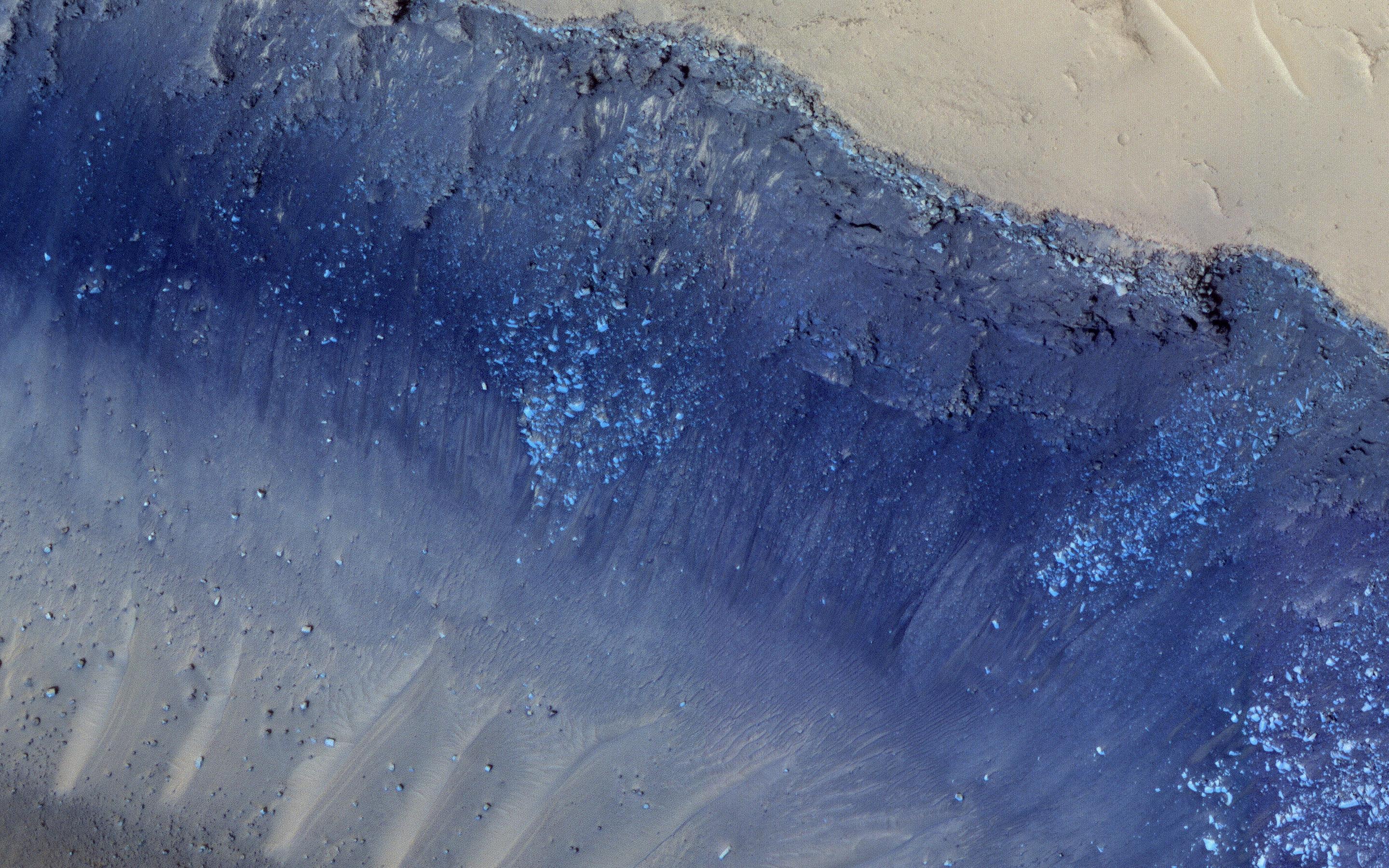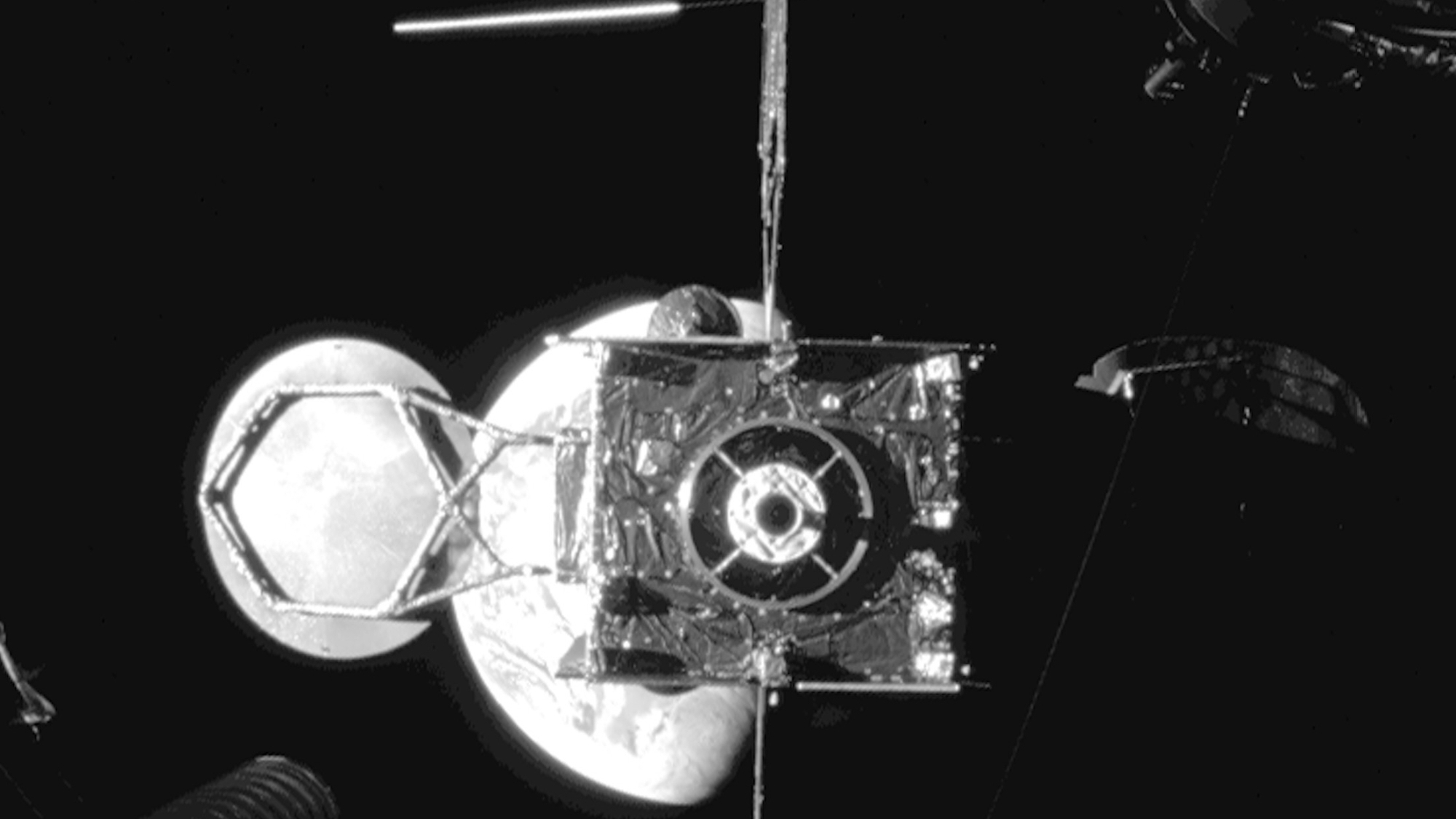Landslides on Mars Spotted from Space in Amazing NASA Photo

On Mars, just as on Earth, gravity can send material tumbling down steep slopes — and the results can be stunningly pretty, as shown in this photograph NASA released today.
The image reveals an area of Mars called Cerberus Fossae, which scientists believe is the youngest fault system on the planet. Here, geologists see two different types of landslides happening.
First, there are larger boulders, which appear light blue against the dark blue background in the image. Scientists believe these boulders come from the uppermost layer of bedrock, the thin layer of light blue near the top of the image.
Related: Marsquake! NASA's InSight Lander Feels Its 1st Red Planet Tremor
Then, there are narrow, dark lines across the blue rock, which scientists believe also mark downslope movement, simply of smaller particles of rock.
In both cases, the processes are formally known as mass wasting. The phenomenon intrigues scientists, who hope to eventually understand how it plays out differently across Mars' surface and over the Martian seasonal cycle.
An instrument called the HiRISE camera, which is part of NASA's Mars Reconnaissance Orbiter, captured the image on Jan. 24. The spacecraft has been in orbit since 2006, and scientists hope that its camera will be able to continue working at the Red Planet for years to come.
Get the Space.com Newsletter
Breaking space news, the latest updates on rocket launches, skywatching events and more!
- Photos: Mars Caves and Lava Tubes
- NASA's InSight Lander on Mars Spotted from Space!
- Photos: Mars Volcano Views Revealed by Spacecraft
Email Meghan Bartels at mbartels@space.com or follow her @meghanbartels. Follow us on Twitter @Spacedotcom and on Facebook.
Join our Space Forums to keep talking space on the latest missions, night sky and more! And if you have a news tip, correction or comment, let us know at: community@space.com.

Meghan is a senior writer at Space.com and has more than five years' experience as a science journalist based in New York City. She joined Space.com in July 2018, with previous writing published in outlets including Newsweek and Audubon. Meghan earned an MA in science journalism from New York University and a BA in classics from Georgetown University, and in her free time she enjoys reading and visiting museums. Follow her on Twitter at @meghanbartels.









